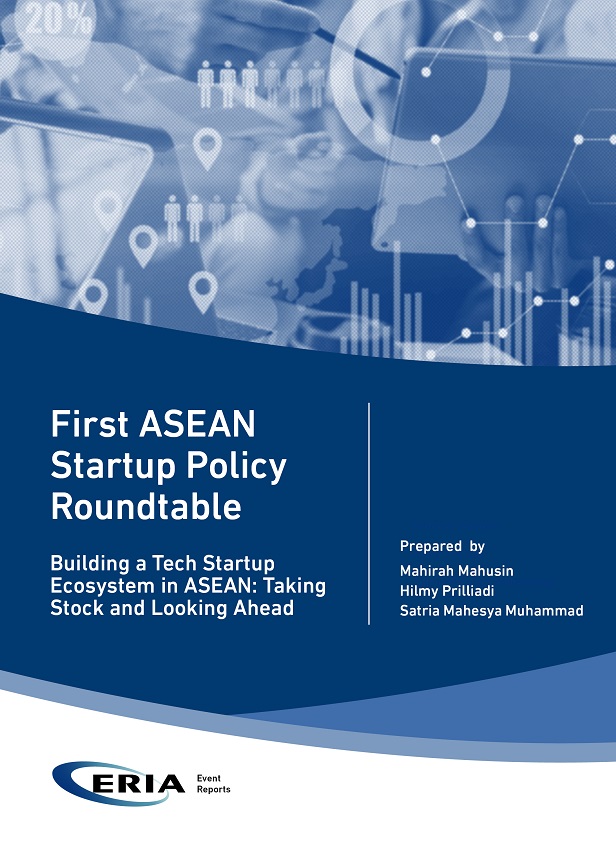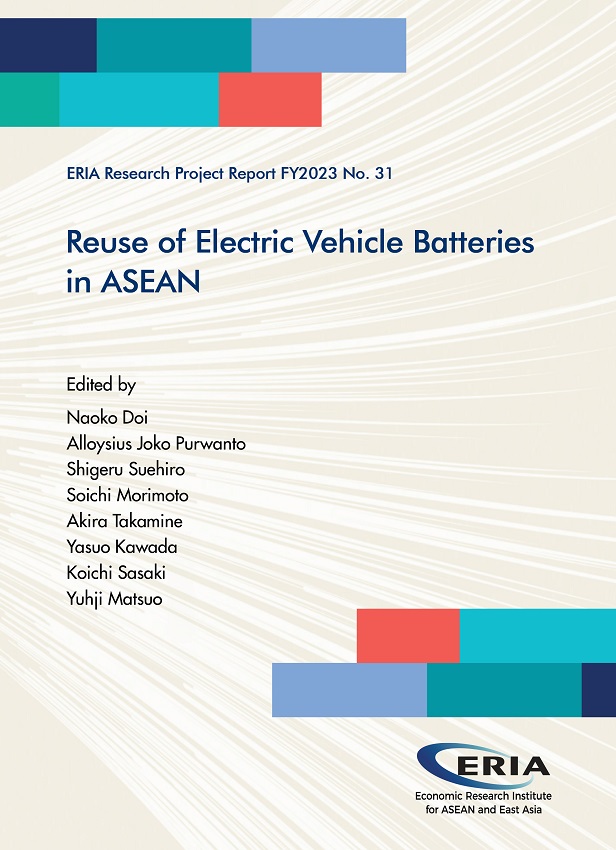Call for Proposals: ERIA Microdata Research Fiscal Year 2018

Date:
22 June 2018Category:
Call for ProposalsType:
Tags:
microdata, Industry, industrial policy, industrial development, trade policy, TradePrint Article:
The Economic Research Institute for ASEAN and East Asia (ERIA) invites submissions of research proposals for the ERIA Microdata Research Project for Fiscal Year 2018. This project is under the scope of one of ERIA’s three research pillars – Deepening Economic Integration. The theme of this fiscal year’s research project is Microdynamics of Industrial Development and Trade and Industrial Policy. This project comprises country studies by authors mainly from ERIA member countries.
Please email research proposals to Doan Thi Thanh Ha ( ![]() ) by 28 July 2018. Early submission is encouraged.
) by 28 July 2018. Early submission is encouraged.
The authors will be notified of the decision about the proposal selection process no later than 17 August 2018.
ERIA provides financial support of US$8,000 per paper for the selected proposals. ERIA also covers the travel costs of one author per paper to attend the workshops of the project.
Theme of the Research
Developing new industries or making infant industries grow to become mature industries has always been an important policy objective not only for developing countries but also for developed ones. To achieve this objective, most, if not all, governments have utilised trade and industrial policy tools and have often taken an approach of ‘protect and support (subsidise)’. Business communities usually promise or claim that their industries will grow, become more efficient and productive, and eventually acquire international competitiveness if their industries are protected and subsidised. It is true that the protect-and-support approach of industrial development is not without some theoretical justification. It is well understood, for example, that when there are static and dynamic increasing returns to scale or when there are coordination failures, the protect-and-support approach may help new or infant industries to emerge and grow. Whether this approach does in fact make new and infant industries grow and whether it delivers the claimed outcomes, however, has been an issue of contentious debate and controversy.
Studies employing firm- or firm-product level microdata may contribute to a better understanding of this issue in at least two ways. First, it can help further clarify the microdynamics of industrial development. Although we do not try to give a rigorous definition of the microdynamics of industrial development, we think of it roughly as a process from the first domestic production (by indigenous or foreign firms) of a product in a new industry to the emergence of the full-blown industrial base that is internationally competitive without direct government protection or subsidy. Although numerous studies have at least partly clarified this process, it is true that our understanding of this process is still limited and much more research remains to be done. Second, by employing firm- or firm-product level microdata, we can conduct more in-depth analyses of the roles of trade and industrial policy in making industries grow. In the case of most real-world industrial policy programmes, in particular, a subset of firms within an industry, not all firms, receive government support.
Against this background, this project aims to (i) clarify the microdynamics of industrial development further, and (ii) empirically evaluate the effectiveness and efficiency of trade and industrial policies. Thus, the two main questions to be addressed by this project are ‘How does a new industry emerge and how does an infant industry grow to become a mature industry which is internationally competitive?’ and ‘Are trade and industrial policies effective and efficient for making industries grow?’
We do not try to give a full list of specific research questions relevant for this project, but ask the potential authors to raise the questions they themselves consider to be relevant and design their own research. Although we favour research proposals that address elements of both (i) and (ii), research proposals that aim to tackle either (i) or (ii) in a rigorous and convincing way in the context of their own country are also acceptable. We also ask the potential authors to link the research to important aspects of globalisation, such as exporting, importing, and foreign investment. Authors must employ micro data (i.e. firm-, plant-, or product-level data sets) and conduct a publication-quality empirical study complemented with descriptive analyses.
Project Schedule
- Deadline for submission of research proposals : 28 July 2018
- Notification of the selected proposals : 17 August 2018
- First workshop : 9–10 November 2018
- Second workshop : mid-February 2019
- Deadline for the final report submission : mid-March 2019
Proposal
Research proposals should be five to eight pages long, and should contain the following:
- research question(s),
- objective and background,
- brief literature review,
- description of data and methodology,
- expected value added,
- policy relevance, and
- references.
Others
The research should be original. The final report will be included in an edited project report, which will be submitted to ERIA. Some of the completed research papers may be posted as working papers in the ERIA Discussion Paper series.




